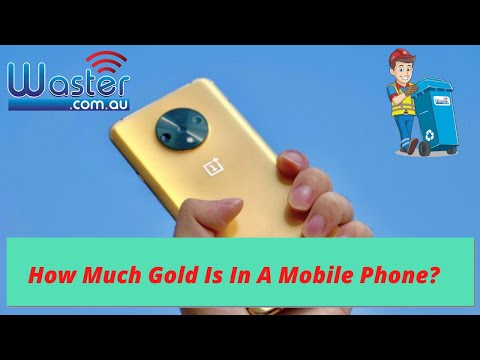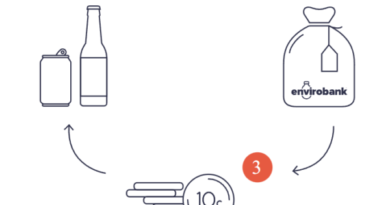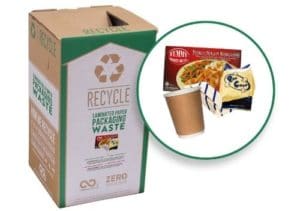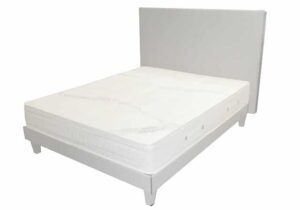Waste To Gold: How A Team Of Scientists Extracted Gold From A Mobile Phone 📱
Energy Disrupter
Waste To Gold 📱: We consider discarded devices such as mobile phones, computers, televisions (TVs), printers and even some kitchen appliances like microwaves, toasters and coffee makers, as e-waste. Focusing more on mobile phones, did you know that you can extract a bit of gold from them? We cover how a team of scientists in a prestigious Swiss university managed to do so using a cheese byproduct! Of course, we suggest that you continue reading to learn more.
Before we deep-dive into extracting gold from waste.
Mobile phones have become exceedingly common in society, rapidly integrating into everyday life across the globe. Several factors contribute to their widespread adoption.
Firstly, they are now more affordable and accessible than ever before, available at various price points to cater to a wide range of consumers. Secondly, mobile phones provide instant connectivity, enabling people to communicate through calls, text messages, social media, and various messaging apps, fostering communication and collaboration on a global scale.
Other uses of a mobile phone
Additionally, modern smartphones offer a plethora of features beyond traditional calling and texting, such as internet browsing, email access, GPS navigation, photography, gaming, and entertainment, making them indispensable tools for both personal and professional use.
Continuous advancements in mobile technology drive consumer demand, leading to the development of more powerful smartphones with improved capabilities and better user experiences, encouraging frequent upgrades.
>Download Now: Free PDF Business Owners Guide To Commingled Recycling Bin Services
Furthermore, mobile phones play a significant role in driving economic growth and development, facilitating e-commerce, mobile banking, and digital payments and empowering individuals and businesses to participate in the digital economy.
Overall, the ubiquity of mobile phones underscores their importance and influence in modern-day living.
Now, what happens when the ever-useful mobile phone runs its course? We present you with one, interesting example: extracting gold from mobile phone electronic waste.
Extracting gold from mobile phone waste? Is it really possible?
Some gadgets like smartphones, computers, and TVs have tiny traces of gold tucked away in parts like connectors, circuit boards and integrated circuits. However, when we no longer use these devices, we toss them to the side and they ultimately turn into electronic waste, or simply e-waste.
We can avoid tossing them aside by recycling them. One method of recycling this type of waste that has become quite popular these days is extracting the gold from them.
Currently, we have the option of extracting the gold found from the waste, therefore making this method possible. Unfortunately, the techniques used are heavy on energy and often involve using very harmful, toxic chemicals.
However, a team of scientists at a university in Switzerland found a highly efficient, affordable and notably sustainable solution, which we will cover below.
Waste to gold… using cheese byproduct?
A group of scientists led by Professor Mezzenga from ETH Zurich discovered a really effective, budget-friendly and environmentally friendly solution: they utilised a byproduct from making cheese to extract gold from electronic waste.
Whey protein, which is the leftover liquid after milk is curdled and strained during cheese production, is rich in proteins, lactose, vitamins, and minerals.
The researchers utilised whey proteins to create a sponge-like material capable of extracting gold from old computer motherboards that were dissolved in acid. This sponge proved to be more effective at attracting gold ions compared to other metals due to the unique structure of the proteins.
Once the sponge absorbed the gold, it was processed into small pieces and melted down to form a nugget. Surprisingly, the team managed to obtain a nugget weighing 450 milligrams and containing 91 per cent pure gold from just 20 motherboards.
The researchers believe that their innovative method could be scaled up for larger-scale gold extraction processes.
How this innovation helps
When asked about the method, Mezzenga had this to say: “The fact I love the most is that we’re using a food industry byproduct to obtain gold from electronic waste”. “You can’t get much more sustainable than that!” he added.
The method they’re using is pretty cool because it tackles two big issues at once: recycling electronic waste and making use of leftover food materials.
This way, they’re not only helping the environment by reducing waste but also creating something valuable out of materials that might’ve just been thrown away.
It’s like hitting two birds with one stone!
Plus, as more and more electronic waste piles up, finding ways to recycle it is becoming super important – a necessity at this point, even. So, this approach not only helps keep our planet cleaner but also ensures we don’t lose out on valuable stuff that we can reuse.
It’s kind of like turning rubbish into treasure whilst being kind to the environment at the same time.


[embedded content]
Waster’s final thoughts
Of course, we want this recycling method to continue to develop and one day turn into the primary way of dealing with e-waste. Extracting gold from sustainably is the dream we are rooting for!
In our ongoing battle against the mounting issue of electronic waste, finding effective solutions is paramount, and this includes addressing the disposal of mobile phones.
Even with our aforementioned stance on recycling mobile phones by turning waste into gold standing out as a robust approach to keeping mobile phones from clogging up landfills and causing environmental harm, we also would like to see alternative avenues worth exploring, such as reusing and repurposing. These methods contribute to fostering a more sustainable environment by extending the lifespan of electronic devices and reducing the demand for new ones.
If the thought of delving deeper into the realm of responsible electronic waste management interests you, we invite you to peruse our blog dedicated to computer recycling, where we delve into the intricacies of addressing e-waste challenges and highlight the importance of adopting eco-friendly practices in our digital age.
By raising awareness and promoting proactive measures, we can collectively work towards mitigating the adverse impacts of electronic waste on our planet and paving the way for a greener future.
Contact Waster right now for your waste and recycling needs now!
Does your Australian-based business need waste and recycling services? If so, then you have come to the right place!
Please call 1300 WASTER (1300 927 837). You can also email us at info@waster.com.au or enquiries@waster.com.au if you have further questions. Find the best deals in terms of waste and recycling pricing and services!

















